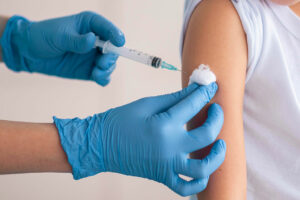by Edg Adrian A. Eva, Reporter
Health experts on Thursday called for heightened prioritization and awareness concerning the healthcare of Filipino adolescents, saying that this age group remains neglected.
During the Uniting Voices for Adolescent Health forum, health experts, educators, and advocates emphasized the need to improve access to essential preventive healthcare for adolescents aged 10 to 19.
This includes expanding access to vaccines, mental health services, and teenage pregnancy prevention programs, as well as strengthening education on the risks of gateway drugs.
“The main message is to put adolescents at the forefront in terms of investing in their health, training for health personnel, and in programs and additional laws that will provide a safer environment for them,” Dr. Emma A. Llanto, member of society of adolescence medicine of the Philippines inc. told BusinessWorld at the sidelines of the forum.
Adolescents are often deprioritized in healthcare due to the perception that they are generally healthy, Ms. Llanto said, with most preventive care efforts focused on children under one year old.
She also cited the recent Lancet Commission report released in May, which said that low- and middle-income countries like the Philippines invested only around 2.4% of total development assistance for health in adolescents from 2016 to 2021, despite this age group making up 25.2% of the global population.
By investing in adolescents, countries can gain cost-effective and triple-fold benefits, with every dollar yielding a return of US$5.40 to $9.60, the report also said.

Vaccination
Dr. Sally Jane G. Velasco-Aro, a pediatric infectious disease specialist, told BusinessWorld that the government should also prioritize vaccinating adolescents, as it is both cost- and health-effective in protecting them from some life-threatening diseases.
“We have to bring back the focus not just on children under one year old, but also on these vulnerable populations—(adolescents),” Ms. Aro said.
“Because there are newly introduced vaccines and new diseases that are known to be severe also in this particular age group, the focus now shifts to teens.”
She added that by achieving herd immunity through vaccination of adolescents, vulnerable people in the communities like the elderly will also be protected.
In October 2024, the education and health departments revived the school-based immunization program, dubbed Bakuna Eskwela, where school-aged children are vaccinated against measles, rubella, tetanus, diphtheria, and human papillomavirus (HPV).
The program aims to immunize at least 3.8 million public school students in Grades 1 and 7 and an additional 973,930 female Grade 4 students in selected public schools with HPV.
Experts in the forum also called for comprehensive data on the number of vaccinated adolescents in the Philippines. They likewise urged a multi-sectoral effort, especially from parents, to allow their children to get vaccinated.
Experts urge prioritization of adolescent healthcare
Philippines Pandemic
Post a Comment